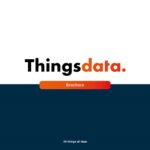IOT security with Thingsdata
The term Internet of Things is incredibly broad and as the technology continues to evolve in many different ways, the number of devices has only grown. This involves several risks, organizations must seriously consider the increasing number of insecure IoT devices. IoT security is the convergence of techniques, strategies and tools that are used to prevent IoT devices from being compromised. Thingsdata offers various IoT security applications.
Frequently asked questions about IOT security
Why should organizations care about IoT security?
Organizations should be concerned about IoT security because insufficient security measures can have serious consequences. IoT devices are often connected to corporate networks and collect sensitive data. Insufficient security can lead to data leaks, privacy breaches, operational disruptions and even physical risks.
Why is it easy for Thingsdata to secure the IoT?
Securing the IoT is complex due to the wide variety of devices, protocols and connections. For many organizations, IoT security is still a difficult subject, which is why it is still being omitted. Thingsdata has a wide knowledge, running through the entire IoT chain, whereby the security of IoT connectivity is self-evident. We are aware of the latest security options for different hardware and software. Our own expertise, supported by strategic partners, protects your organization against external cyber attacks.
What are the security risks for organizations using IoT?
Some security risks for organizations using IoT are: insecure configurations, poor authentication and authorization, lack of encryption, vulnerabilities in IoT devices, inadequate patch management, data integrity and privacy issues, and potential DDoS (Distributed Denial of Service) attacks.
Which laws and regulations apply to IoT security and privacy?
IoT security and privacy laws and regulations vary by country and region. Some important regulations include the General Data Protection Regulation (GDPR) in the European Union, the California Consumer Privacy Act (CCPA) in the United States, and industry-specific standards such as ISO/IEC 27001 for information security. It is important for organizations to keep up to date with applicable legislation and take appropriate security measures.
